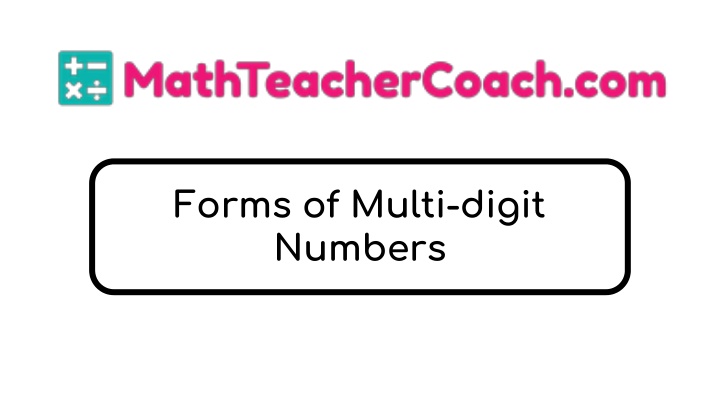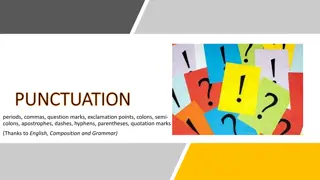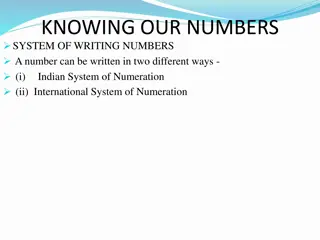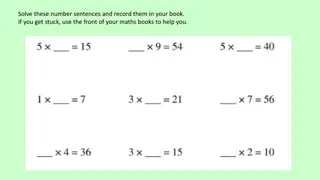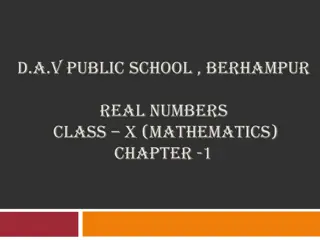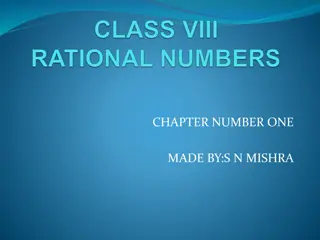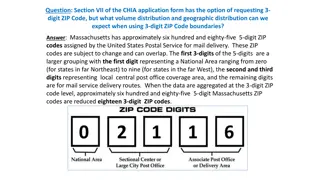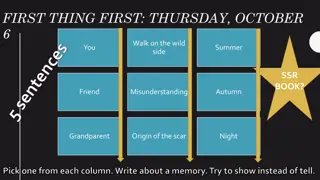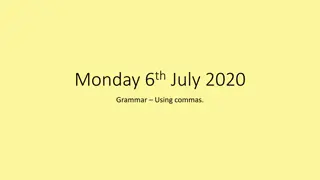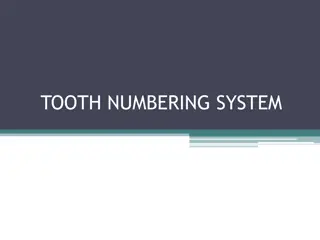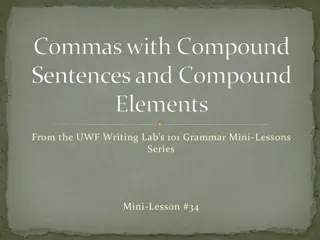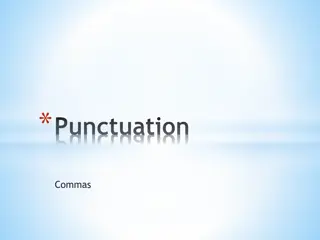Multi-digit Numbers Understanding: Commas, Expanded Notation, Periods
World of multi-digit numbers by understanding the use of commas for grouping, expanded notation, and numeral periods. Dive into concepts such as millions, hundreds, thousands, tens, and ones through in-depth examples and breakdowns.
Uploaded on Feb 26, 2025 | 0 Views
Download Presentation

Please find below an Image/Link to download the presentation.
The content on the website is provided AS IS for your information and personal use only. It may not be sold, licensed, or shared on other websites without obtaining consent from the author.If you encounter any issues during the download, it is possible that the publisher has removed the file from their server.
You are allowed to download the files provided on this website for personal or commercial use, subject to the condition that they are used lawfully. All files are the property of their respective owners.
The content on the website is provided AS IS for your information and personal use only. It may not be sold, licensed, or shared on other websites without obtaining consent from the author.
E N D
Presentation Transcript
Forms of Multi-digit Numbers
Review Commas are used to show groupings of numbers Commas are used to show groupings of numbers Number form: 6,025,426 Word form: six million, one 6,125,426 hundred twenty-five thousand, four hundred How many thousands are in the number? twenty-six How many hundreds are in the number? Expanded form: 6,000,000 + How many hundred thousands are there? 100,000 + 20,000 + 5,000 + 400 + How many millions are there? 20 + 6
Numeral Periods & Expanded Number Notation Understanding numeral periods and the commas that separate them will help us with learning Expanded Number Notation! 8,347,592 Millions Period Hundreds Thousands Period Hundreds 3 Hundreds Period Hundreds 5 Tens Ones 8 Tens 4 Ones 7 Tens 9 Ones 2 In our last lesson we learned about expanded form that looked like this: 8,000,000 + 300,000 + 40,000 + 7,000 + 500 + 90 + 2 In this lesson we ll break it down even further into expanded notation which looks like this: (8x1,000,000) + (3x100,000) + (4x10,000) + (7x1,000) + (5x100) + (9x10) + (2x1)
Expanded Number Notation 426,512 Hundred thousands: 4 x 100,000 Ten thousands: 2 x 20,000 (4 x 100,00) + (2 x 20,000) + (6 x 1,000) + (5 x 100) + (1 x 10) + (2 x 1) Thousands: 6 x 1,000 Hundreds: 5 x 100 Tens: 1 x 10 Ones: 2 x 1
2,375,014 Let s try this number Notice that we leave the hundreds place out because we don t have any hundreds in this number! Millions: 2 x 1,000,000 Hundred thousands: 3 x 100,000 Ten thousands: 7 x 10,000 (2x1,000,000) + (3x100,000) + (7x10,000) + Thousands: 5 x 1,000 Hundreds: 0 x 100 (5x1,000) + (1x10) + (4x1) Tens: 1 x 10 Ones: 4 x 1
Lets expand! 934,251 (9x100,000) + (3x10,000) + (4x1,000) + (2x100) + (5x10) + (1x1) (9x100,000) + (3x10,000) + (4x1,000) + (2x100) + (5x10) + (1x1) 9 x 100,000 3 x 10,000 9 x 100,000 3 x 10,000 5 x 101 x 1 1 x 1 2 x 100 5 x 10 4 x 1,000 4 x 1,000 2 x 100
8,437,265 8,437,265 Let s try this one! 2 x 100 2 x 100 7 x 1,000 7 x 1,000 6 x 10 6 x 10 Hundreds Expanded Notation! Thousands Tens (8x1,000,000) + (4x100,000) + (3x10,000) + (7x1,000) + (2x100) + (6x10) + (5x1) (8x1,000,000) + (4x100,000) + (3x10,000) + (7x1,000) + (2x100) + (6x10) + (5x1) 3 x 10,000 3 x 10,000 Ten thousands 5 x 1 5 x 1 Ones Hundred thousands Expanded Form! 4 x 100,000 4 x 100,000 Millions 8,000,000 + 400,000 + 30,000 + 7,000 + 200 + 60 + 5 8,000,000 + 400,000 + 30,000 + 7,000 + 200 + 60 + 5 8 x 1,000,000 8 x 1,000,000
